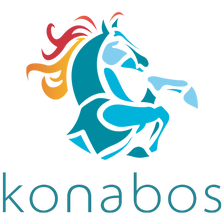Sitecore Search – Everything you need to know about this new product
Hugo Santos - Head of Search Practice
25 Nov 2022
What is Sitecore Search?
There is a new kid in the town. After many years handling client-facing search with homemade solutions or third-party software products, Sitecore officially has its own Search product: Sitecore Search.
This brand-new product was officially released to the public during Sitecore Symposium 2022 that happened in Chicago during the last week of October. Among a few other new releases, this one is by far the one that excited me most. It’s definitely a big deal.
The Sitecore development team had leveraged all the knowledge and know-how it gained a few months ago after the Reflektion acquisition, another solid search focused product which is more centered toward e-commerce search pages and is now rebranded to Sitecore Discover.
Instead of taking the easy route and changing a few things here and there to come up with a new search product focused on content instead of products, Sitecore development team did it right and created a new product from zero, removing all the already known technical debts and leveraging everything they’ve learned during those many years building Sitecore Discover. Kudos to the Sitecore development team here for the courage.
Sitecore Search is designed to be a plug-and-play solution. Easy to sign to, easy to configure and easy to integrate. This follows the current Composability trend that Sitecore is implementing and makes entirely sense with the other moves Sitecore is taking during the last few years. The idea is that a customer should easily be able to leverage all the APIs available to switch from their current search solution, that could be SearchStax, Coveo or a homemade one, and start using Sitecore Search as part of their Composable Stack.
It has already been released as early access to a few beta users and should be generally available during the first few months of 2023. Let’s keep an eye open and see if they can fulfill this aggressive timeline.
Features and Capabilities
As already mentioned here, Sitecore Search will be 100% API focused and disassociated from the main Sitecore solution (XP or XM Cloud for instance) products.
It uses the powerful crawler features inherited from Sitecore Discover to provide indexing capabilities to customers. You should be able to within a few steps configure the crawler entry-point (should be publicly available of course) and define some mappings between HTML tags and index fields to specifically index some parts of the indexed pages.
If the crawler is not enough for you, Sitecore Search will also provide a Push API endpoint that can be used to index more complex data. This requires more customization for sure, but at the same time it gives the development team full power and make them free to index anything needed, such as a custom database or even external webservices.
Since Sitecore is all about the user experience, Sitecore Search can also collect search analytics events to give the business and marketing teams insights about how users are interacting with the website search page. This is key for success on providing a good general search experience over time.
Not only that, but the collected analytics can also feed machine learning models to provide AI-Powered suggestions, something that has been perfected by the Sitecore Discover team during the last few years and has now got to the sweet spot in terms of predictions. This can be a game changer.
One thigh that might be new for experienced Sitecore experts is the fact that this new Sitecore Search product is intended to be served in a self-service fashion, on which people interested on using the product will be able to get access to it by simply logging into Sitecore Portal, subscribing and using a free trial license to play with it for a few weeks and evaluate it. How cool it would be if they could provide something like this for entire Sitecore stack?
What about the future?
Sitecore customers are often big companies, so requiring multi-language website is quite common. Even though we can emulate this for search by using a few custom fields, the general experience is not the same as when we compare with native multi-language support. Having different stop-words and word expansion for different languages is necessary to provide a clean search experience in this scenario.
The fact that this product comes with both Crawler and Pushing API capabilities gives us a lot of power indeed, but it still requires some assemblage.
I’d love to see a native integration with products such as XM Cloud, on which we would be able to leverage the XM Cloud webhooks to index from inside to outside, which is the opposite of crawler indexes and by far the most powerful option when it comes to having multiple index fields and flexibility.
Still on the same matter, in order to provide the best search relevance experience possible, I think that Sitecore could easily integrate Sitecore Search with CPD/Personalize, giving us access to not only Search analytics events, but the entire website analytic events journey for a given user. We would also be able to integrate Search personalization with website personalization and even run A/B testing for those. This is the most exciting thing in my option about having a Sitecore Stack product for search and it's probably already on their radar.

Hugo Santos
Hugo specializes in search and automation, including testing automation. He is bright, amiable, and energetic. As a Sitecore Architect, he is passionate about creating great solutions that don't just follow best practices but further them. His passion for doing great work is equaled only by his willingness to share his expertise with the Sitecore community by blogging and advocacy, like helping to organize the Quebec Sitecore User Group while in Canada. Hugo is a four-time Sitecore Technology MVP, in recognition for all that he does for the Sitecore Community.



Share on social media